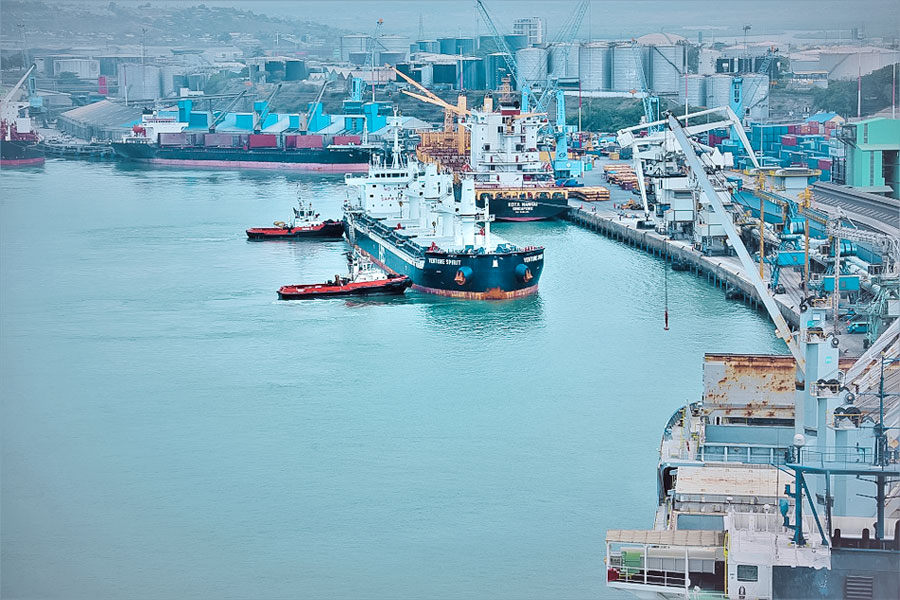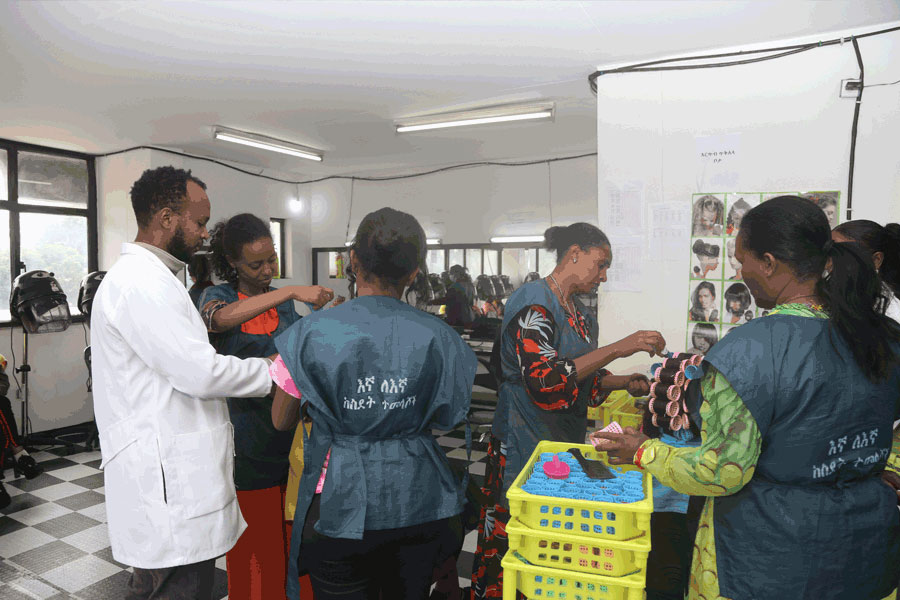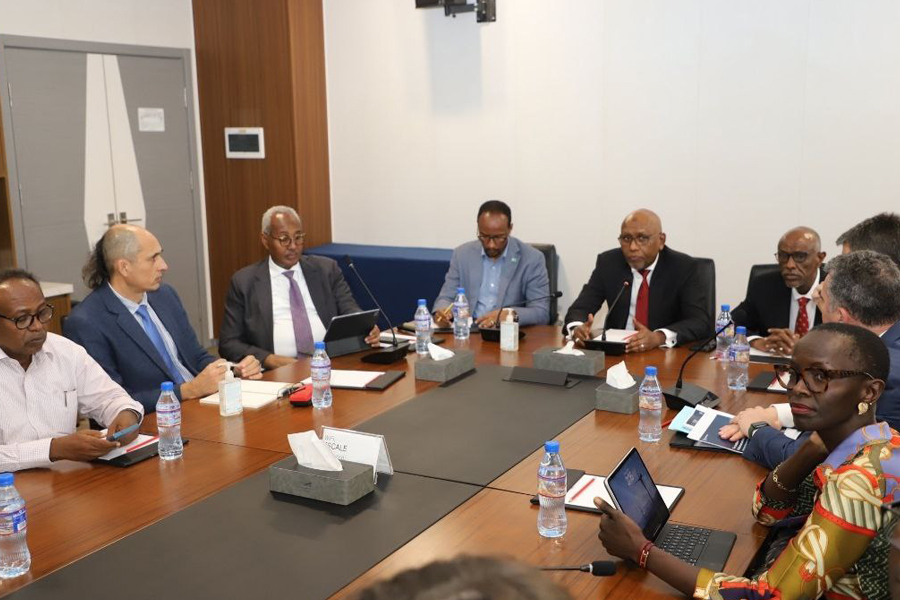
Editorial | Sep 03,2022
Investors who rely on tractors, trucks, and field vehicles for commuting, transporting commodities, and farming have their vehicles stranded at the Djibouti ports, following a policy shift by the federal government banning the imports of vehicles that are not electric-powered. Although importers of these vehicles have raised concerns with the authorities, no satisfactory response was provided until two weeks ago, when the Ethiopian Investment Commission (EIC) intervened.
Two weeks ago, Commissioner Hanna Arayaselassie wrote to Alemu Sime (PhD), minister of Transport & Logistics, asking for clarification and discussion of the pending concerns.
Domestic and international investors are concerned about the decision to prohibit imports of vehicles powered by gasoline fuels. They see the decision, targeting urban pollution and promoting sustainable development, lacks clear legislation and effective enforcement mechanisms, creating operational issues and uncertainty for businesses.
Hanna is also concerned about business disruptions if immediate intervention from the authorities is not forthcoming. According to her, foreign and domestic investors have been bewildered by the lack of clear policy.
"There were no directions over which vehicles have been banned," she told Fortune. "Receiving clarity is crucial. If not, businesses will be at risk."
The Commissioner believes that a rapid shift to electric vehicles would be incompatible with the current infrastructure limitations and the limited number of manufacturers worldwide.
The ban on fuel-powered vehicles has not only created logistical bottlenecks but has also stifled economic activities across various regional states, particularly outside Addis Abeba, where electric power infrastructure such as charging ports is inadequate. The availability of electric-powered heavy-duty vehicles remains limited globally, with advancements in this technology being recent.
Despite ongoing efforts to build infrastructure and promote electric vehicles through 250 registered electric vehicle importers, there are currently close to 46 charging stations scattered across the country.
"Forcing investors to adopt these vehicles prematurely could lead to operational inefficiencies and increased costs," said the Commissioner in her letter. "Ultimately, it discourages investment."
Minister Alemu announced the policy shift to Parliament back in February this year. He cited rising fuel costs as the reason for reevaluating the country's dependence on conventional vehicles and exploring alternative options. His administration seeks to curb carbon emissions, promote cleaner air, and encourage the adoption of greener technologies in the automotive sector by discouraging the import of fossil fuel-powered vehicles.
Leaders of the European Chamber in Ethiopia have raised the issue with the Ethiopian Investment Commission over the past few months. Representing 180 businesses, the lobby group has pleaded for changes to be made for investors struggling due to the fuel-vehicle ban.
According to Bahiru Temesgen, the chamber's executive director, the ban on combustion engines is unfounded without adequate infrastructure. He said over 10 companies from different sectors have been affected, with tractors, cold trucks, and field vehicles stranded at Djibouti ports.
"This is putting investment at risk," he said.
Bahiru said such changes could discourage the foreign direct investment (FDI) the country needs.
FDI declined by 16.4pc last year to 3.3 billion dollars despite recent directives from the Ethiopian Investment Board opening previously restricted sectors to foreign capital.
Herbeg Roses Ethiopia is one of the companies facing problems importing vehicles, with requests to authorities on hold for months. The Dutch-based company's requests to import a Minivan and a Toyota Land Cruiser Prado have been delayed for three months, forcing it to resort to high-cost rentals. Its General Manager, Jolis Klijis, said the latter is needed for field visits while the former is for employee transportation.
The company exports an average of 100 million rose stems annually to the United Kingdom (UK) and the Netherlands from a 40hct farm in Batu, near Ziway Lake, in Oromia Regional State. Jolis expressed concern that the absence of power infrastructure makes it impossible to accommodate electric vehicles.
"Infrastructural inefficiencies have made it impossible," he told Fortune.
Another company with a 100hct farm in Bishoftu (DebreZeit), Joytech Plc, has also faced problems due to the recent ban. The company has struggled to import a cold truck with a capacity of 50,000Kg of herbs and a tractor for its farm. According to Joytech's Manager, Bisrat Haileselassie, the company has had to resort to renting trucks at a monthly cost of 12,000 Br while waiting for a resolution.
However, Abebe Mosisa, CEO of Public Transport & Vehicles at the Ministry, disclosed measures have been taken to allow the import of vehicles ordered before the ban, including construction machinery, trucks, ambulances, and tractors. According to him, there is no resolution for those imported after the ban, while reversing the decision requires a higher official decision.
"It's beyond our authority," he said.
Imports of EVs have nearly doubled from three years ago, with 72 million dollars worth of cars entering the country last year.
Dawit Wubshet is the director of Wubget Group, a conglomerate that includes Crystal Automobiles. His company wants to shift its focus to importing electric vehicles, but few samples are available. According to Dawit, the lack of charging tariffs and maintenance facilities poses a major problem. He sees the transition to EVs as positive progress but believes that viable infrastructure must be established.
"This must be addressed before implementing major policy changes," he told Fortune.
Ethiopian authorities may want to promote the rapid adoption of electric vehicles as part of a national effort to achieve a greener future. However, energy experts have raised concerns about the current electricity infrastructure.
Yemanebrhan Kiros, founder of Yomener Energy Auditing & Engineering Plc, echoed concerns that a rapid shift to electric vehicles would be incompatible with the current power infrastructure.
"The power available is not enough as it is," he said.
Yemanebrhan recalled the transition from biogas to electric cooking, which led to overloaded power lines and constant outages. He said building a capable distribution grid is vital for a complete transition to electric vehicles and recommended that supporting policies should include incentives and import duty exemptions.
PUBLISHED ON
Jul 13,2024 [ VOL
25 , NO
1263]

Editorial | Sep 03,2022

Fortune News | Feb 03,2024

Featured | Sep 02,2023

Fortune News | Jul 14,2022

Sunday with Eden | Jul 27,2024

Radar | Sep 29,2024

Obituary |

Fortune News | Jun 22,2024

Agenda | Jan 18,2020

Sponsored Contents | May 02,2023

Dec 22 , 2024 . By TIZITA SHEWAFERAW
Charged with transforming colossal state-owned enterprises into modern and competitiv...

Aug 18 , 2024 . By AKSAH ITALO
Although predictable Yonas Zerihun's job in the ride-hailing service is not immune to...

Jul 28 , 2024 . By TIZITA SHEWAFERAW
Unhabitual, perhaps too many, Samuel Gebreyohannes, 38, used to occasionally enjoy a couple of beers at breakfast. However, he recently swit...

Jul 13 , 2024 . By AKSAH ITALO
Investors who rely on tractors, trucks, and field vehicles for commuting, transporting commodities, and f...

Oct 18 , 2025
The political establishment, notably the ruling party and its top brass, has become p...

Oct 11 , 2025
Ladislas Farago, a roving Associated Press (AP) correspondent, arrived in Ethiopia in...

Oct 4 , 2025
Eyob Tekalegn (PhD) had been in the Governor's chair for only weeks when, on Septembe...

Sep 27 , 2025
Four years into an experiment with “shock therapy” in education, the national moo...